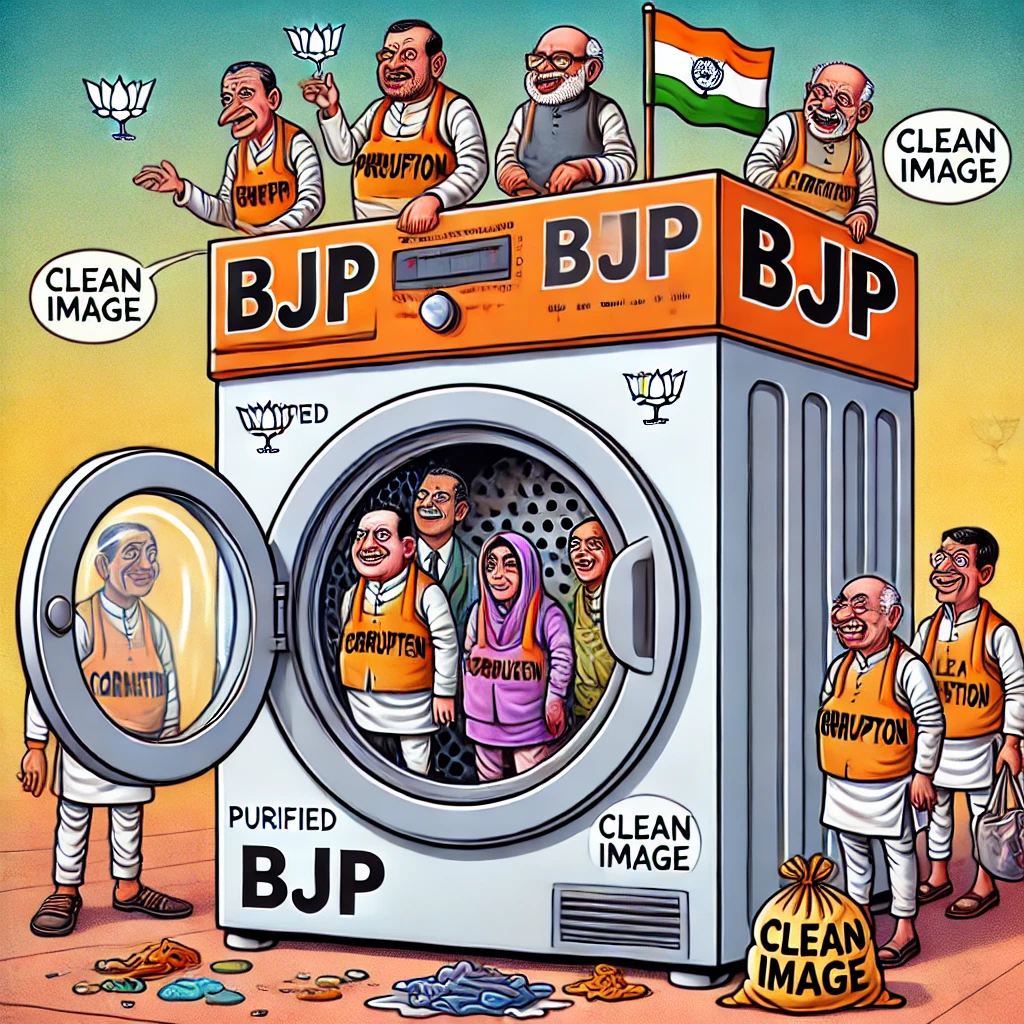The Bharatiya Janata Party (BJP) has often been referred to as a “Washing Machine” by opposition parties, including the Indian National Congress (INC) and others. This label stems from a pattern where politicians, including ministers and MLAs accused of corruption or criminal activities, seem to receive a “clean chit” or see investigations stall after joining the BJP. Critics argue that investigative agencies, including the Enforcement Directorate (ED) and others, appear to go soft on individuals who switch allegiance to the BJP, raising questions about selective accountability.
One notable example is Assam Chief Minister Himanta Biswa Sarma, a former Congress leader who faced several allegations of corruption. However, after joining the BJP, those allegations seemed to lose prominence. Similarly, in Maharashtra, Ajit Pawar, who was accused of involvement in the ₹2,500 crore Maharashtra State Cooperative Bank scam, reportedly saw cases against him close after his alignment with the BJP. The ED had previously seized properties linked to the scam, but they were released, prompting criticism from opposition leaders who claimed this was yet another example of “Washing Machine politics.”
Such instances reinforce the perception that joining the BJP leads to a swift “cleansing” of past allegations. Opposition leaders use the “Washing Machine” metaphor to critique this pattern and highlight what they perceive as the misuse of institutions for political advantage. This narrative has resonated widely, with the public and opposition raising concerns about the impartiality and integrity of investigative agencies.
